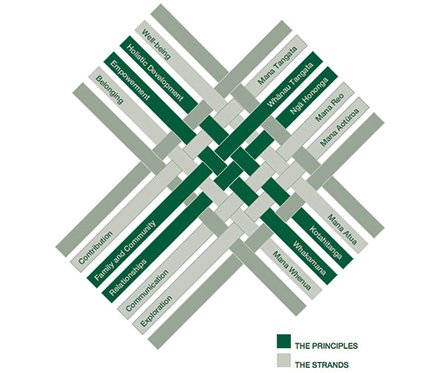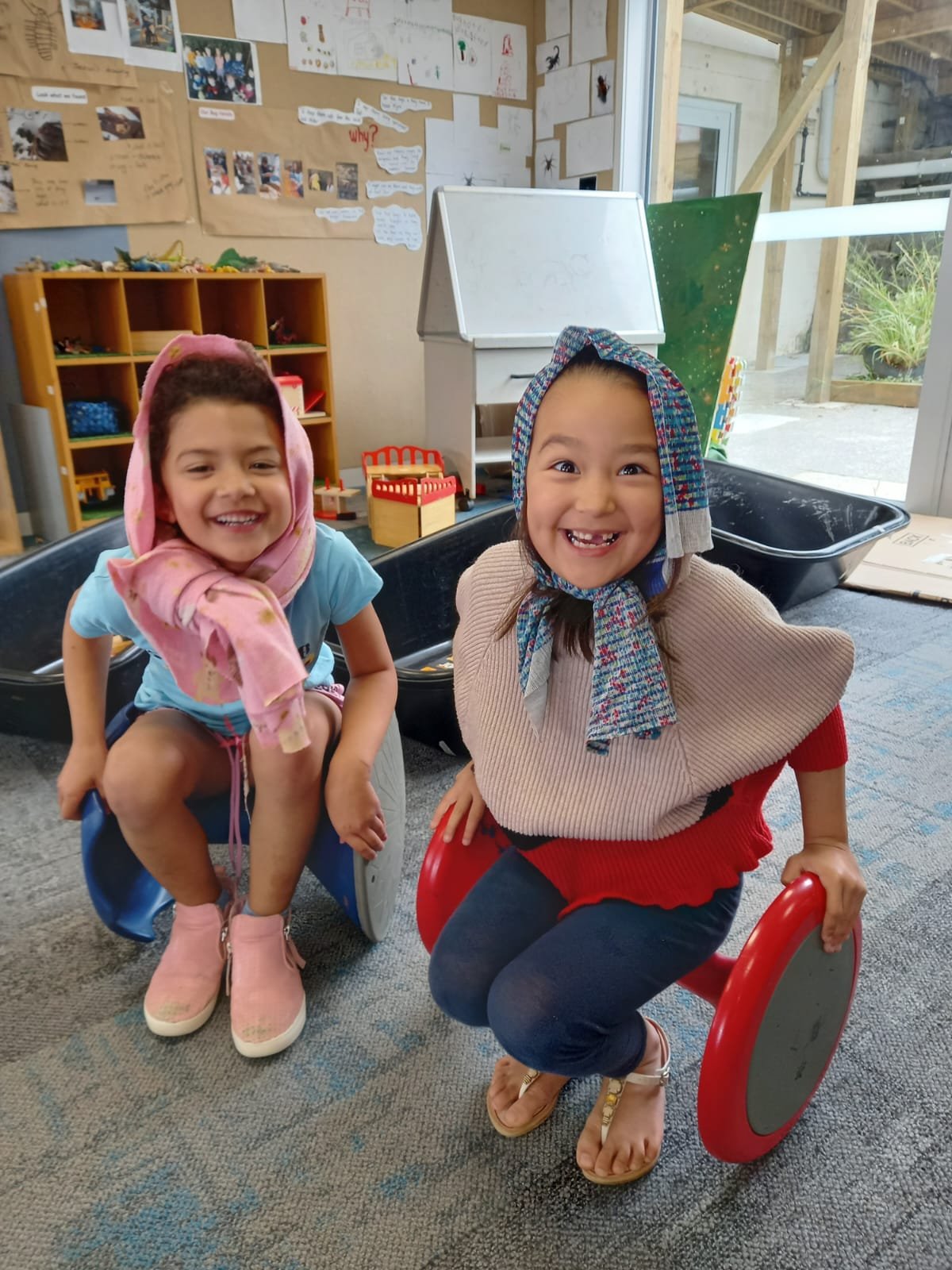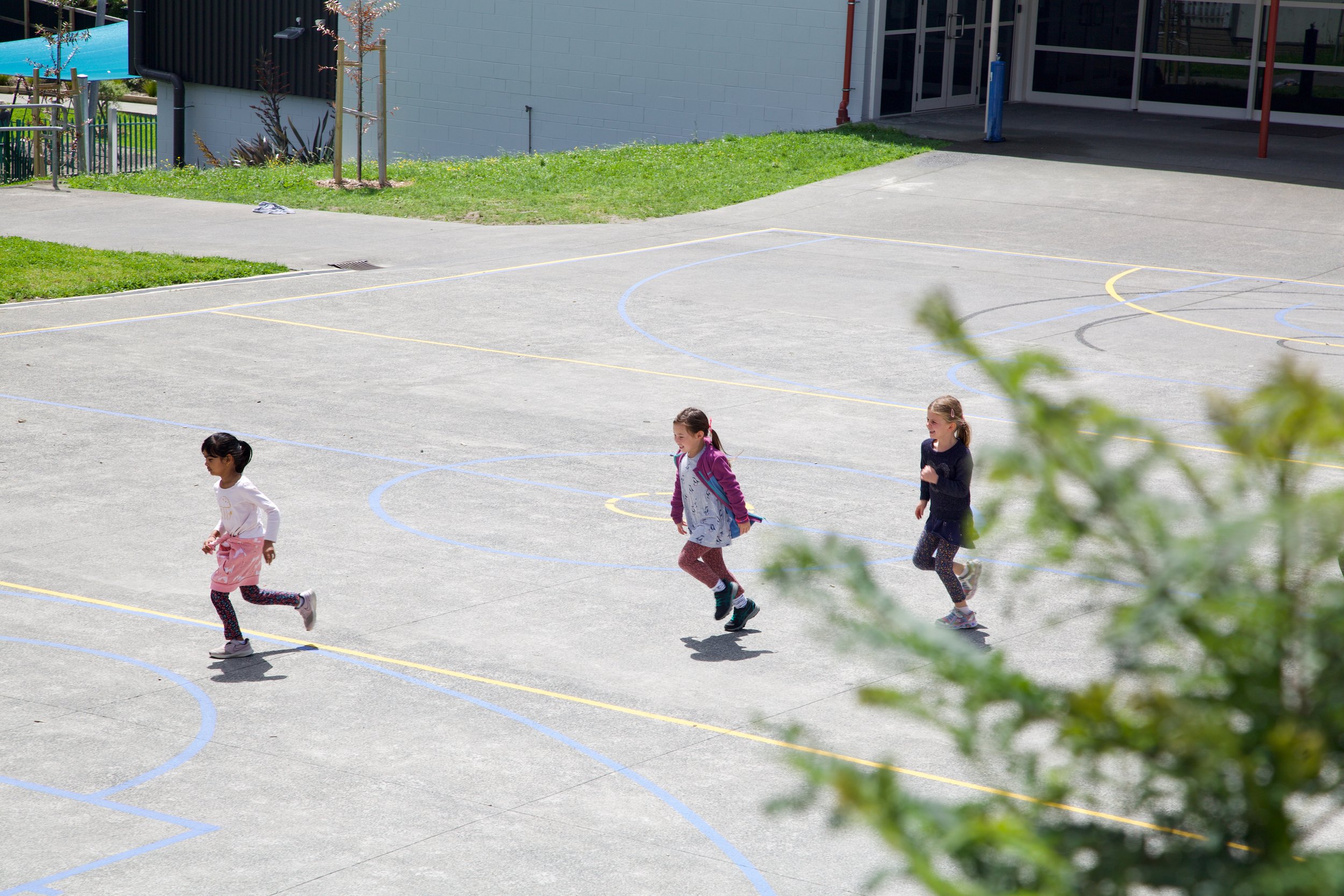
Play-Based Learning
Poipoia te kakano kia puawai
Nurture the seed and it will blossom
In the Junior school, from Years 0-2, children become part of a learning community that places the child at the centre, at the heart of learning. We believe that children are “inherently competent, capable and rich, complete and gifted no matter what their age or ability”. Te Whāriki, 2017
New Zealand is incredibly fortunate to have two inspirational and forward-thinking curricula, Te Whāriki and the New Zealand Curriculum. Both documents outline the ‘why’ of a play curriculum and the rationale that informs our teaching and learning at Balmoral.
The principles and strands of Te Whāriki, Early Childhood Curriculum, provide the framework for children transitioning into a primary school environment and seamlessly weave into the NZ Curriculum.
An Inclusive Curriculum
Research from many areas of education, psychology, neuroscience, and behavioural science, support the fundamental importance of play in developing the knowledge, skills and attitudes that children will require for their future. It is understood that the development of the limbic system, the part of the brain that deals with social and emotional skills, is just as important as developing cognitive skills.
There are a number of foundational skills that children need before they are ready for ‘formal’ reading, writing and maths. As young children develop, the acquisition of social and emotional skills is paramount and is now thought to be an indicator of success later on in life. How our students view themselves as a learner is critical. During the early years of school, 5yrs to 8 yrs old, it is crucial that we support our students to build their creativity, imagination, resilience and social and emotional skills. Our school curriculum helps our students to do this through Play and an Inquiry approach to learning.
What is Play-Based Learning?
Learning through play is a pedagogical approach where play is the valued mode of learning – where children can explore, experiment, discover, and solve problems in imaginative and playful ways. Learning through play is also called play-based learning.
Often there is an idea that play in the classroom is an either/or approach – either the children are playing or the teachers are teaching. This is not the case. An effective play environment is rich with opportunities for children to engage in Literacy and Numeracy, along with the other learning areas of the curriculum.
Characteristics of Play:
Primarily, play is:
self-chosen and self-directed
process rather than product driven
contains structures or rules established by the players themselves
Imaginative, non-literal and removed from reality
Occurs between those who are active, alert and non-stressed
(Gray,2013; Brewer, 2007)
What are the benefits of learning through play?
Learning through play can help schools realise the vision of The New Zealand Curriculum to develop confident, connected, actively involved, lifelong learners. Almost all of the values and key competencies in The New Zealand Curriculum can be developed through play-based learning. There is a growing body of evidence to suggest that learning through play brings numerous benefits to students’ learning and development.
Thinking skills
Play-based activities enable students to engage in flexible and higher-level thinking processes. These include inquiry processes of problem-solving, analysing, evaluating, applying knowledge, innovation, and creativity.
Interpersonal skills
Play-based learning often requires interaction with others and gives students the opportunity to practice language development, cooperation, negotiation, leadership, empathy, active listening, and compromise.
Intrapersonal skills
Play contributes to a child’s sense of well-being and can support the development of intrapersonal skills such as self-esteem, motivation, resilience, concentration, persistence, and time management.
Student agency and engagement
Play-based learning can encourage student agency and often results in deeper levels of student engagement in learning.
Smooth transitions to school
Our new entrant students settle into school quicker than in previous years, because of improved continuity between the school and early childhood curriculum.
Intentional Play
Children’s Play is intentional. During the main Play session, children make their own decisions and direct their own play. Play is driven by the children's interests, questions, and the world that they live in. Their choices are intentional and often guided by their schemas (urges). The opportunity for children to create their own play and explorations helps to develop independence and creative thinking. Play is also a great forum for supporting the children to build relationships and learn how to interact with others. Teachers monitor the play throughout the session and support, scaffold and extend through provocations and questions.
Clear boundaries around safety and behaviour expectations are also established with the children. Outside of the self-directed Play, there is more adult direction whilst still listening to the questions and wonderings from the children which guide the class Inquiry.
For more information about the learning model in Years 0-2, please read our Welcome booklet. This can also be found on the Primary Enrolment page.
Play Beyond Year 2
The school’s curriculum model is based around Inquiry. An integrated approach is taken so that learning across the curriculum areas is linked, wherever possible, to the class Inquiry. Whilst the children won’t have a regular period of time for self-directed Play from Yr3, as they move through the school there will be many opportunities for ‘playful’ learning as they explore their questions and wonderings through a range of hands-on learning experiences such as making, drawing, designing, building, acting out, making music. We refer to these as the 100 Languages of Learning. It is the belief that there are "multiple ways of seeing and multiple ways of being" and these languages (the Hundred Languages of Children) are symbolic and are open to the endless potentials in children. It allows teachers to give the children freedom to choose how they explore their learning, based on their strengths and interests.
FAQ
-
Having read the welcome booklet or looked through the website, you will of course know that children are learning so much through their play. Whilst teachers are present to observe, coach, question and extend the children’s learning, we know that learning does not only happen when an adult is present. Our own experiences of figuring things out by ourselves, or with our peers, shows us this.
Alongside Play, there are planned acts of instructional teaching that happen across the school day and across a range of curriculum learning areas. Our approach meets the expectations of the refreshed New Zealand Curriculum.
Research from many areas of education, psychology, neuroscience, and behavioural science, supports the fundamental importance of Play in developing the knowledge, skills and attitudes that children will require for their future.
-
As much as we would like them to, the children don’t play all day!
Across the day and week, the children participate in:
Inquiry
Maths groups, games and investigations
Reading, writing groups and phonics groups
Story telling
Independent reading and writing
Shared reading and writing
Physical Education
Time in the gym
Swimming (in T1 and T4)
Music
Library time
Health education
Kapa haka and waiata
Visual art
-
Each day the Junior school follows a clear structure and pattern with common routines which the children understand. Each day they will come together to sing and share the school Karakia, play, learn phonics, listen to some shared reading and stories.
The teachers also plan for each day, even for Play. There are intentional provocations set-up within Play and Inquiry and spoken about with the children. This allows teachers to scaffold and extend the learning that they have observed.
-
Instructional reading and writing sessions take place across the week, as they would in a non-play based classroom. The instructional teaching of reading and writing at our school is no different to how it would be taught in a non-play based model - the main difference is that children have regular opportunities to apply their reading and writing in authentic contexts through their play. Children also really develop their oral language skills in Play, which directly supports their reading. A child needs to be able to speak and understand a word before they can read it.
Across the week, all of the children take part in phonics sessions, reading groups, independent reading, shared reading, shared writing and independent writing.
It is Play AND Teaching and Learning.
-
Teaching children to read is a highly skilled task for which teachers undertake Professional Development. Taking books home to read should never become a chore as this can be discouraging and hinder their development of a love of reading. Research shows that promoting the joy of reading, and modelling an interest in reading yourself as an adult, leads to greater success in reading. The book that your child brings home is not an indication of their reading level, those books are for the teacher to use in their instructional reading groups. Your child’s class teacher will talk to you about their reading progress through face-to-face conferences and written reports across the year. Encourage and foster the love of reading at home!
-
Children’s Play is intentional. During the main Play session, children make their own decisions and direct their own play. Play is driven by the children's interests, questions, and the world that they live in. Their choices are intentional and often guided by their schemas (urges).
The opportunity for children to create their own play and explorations helps to develop independence and creative thinking. Play is also a great forum for supporting the children to build relationships and learn how to interact with others.
Teachers monitor the play throughout the session and support, scaffold and extend through provocations and questions. Clear boundaries around safety and behaviour expectations are also established with the children.
Outside of the self-directed Play, there is more adult direction whilst still listening to the questions and wonderings from the children which guide the class Inquiry.
Some further reading:
About schemas: https://www.playcentre.org.nz/2019/11/what-are-schemas/
How to help with reading at home:
TKI website - https://nzcurriculum.tki.org.nz/Curriculum-resources/NZC-Online-blog/Learning-through-play-What-s-it-all-about


